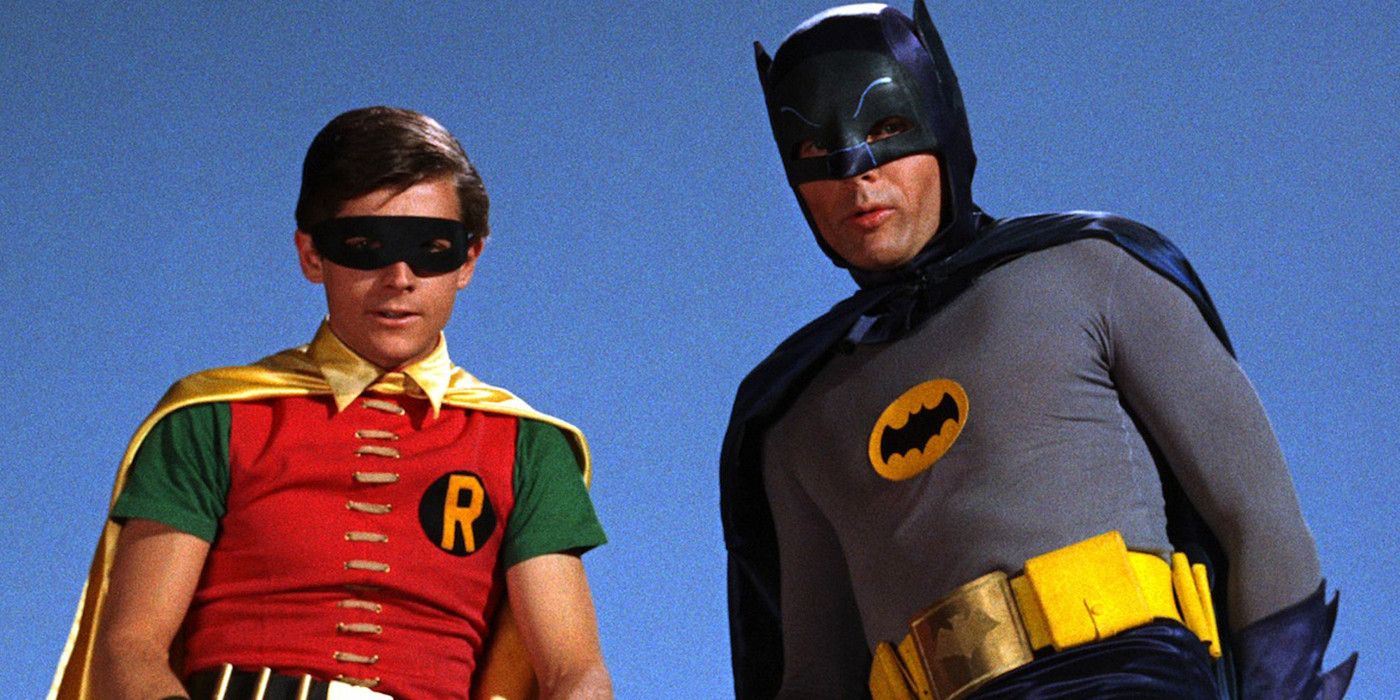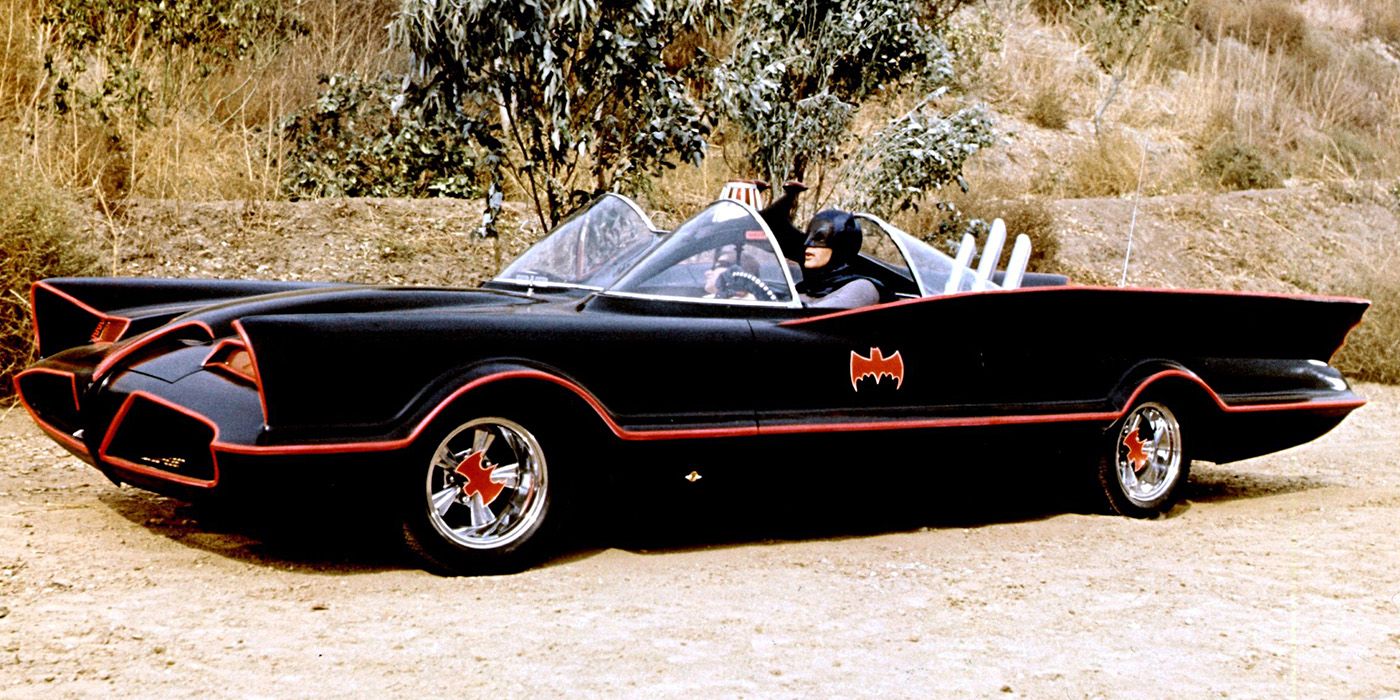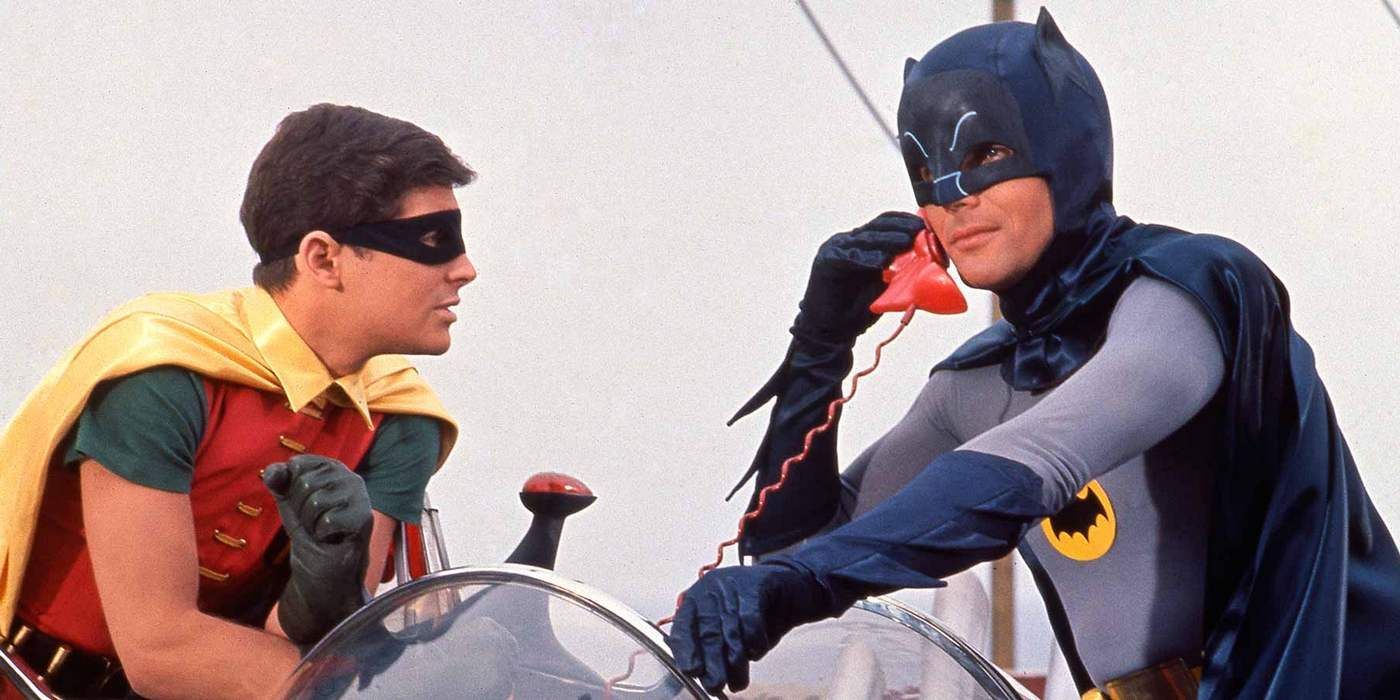The world of comics lost an icon recently with the passing of Adam West, the actor who played Batman in the now legendary 1966 TV series of the same name. Although not the first live-action adaptation of the caped crusader, Batman '66 is one of the most defining and influential, setting a new standard for comic book adaptations and cementing the dark knight as a pop culture icon. West and Burt Ward's performances as Batman and Robin defined the dynamic duo for several generations and left an indelible mark on the history of Batman, DC and comic books as we know them.
Despite his inarguable contributions to pop culture, the ranking of West's Batman among the other Batmen is now something of an ongoing debate for fans of Gotham's protector. Until recently the series was somewhat shunned by the greater comics community as the culture (and greater corporate powers) tried to distance itself from the campy, cartoon-ish quality of the 120-episode strong run in order to keep Batman as dark and gritty as possible. As much only really changed because Christopher Nolan's Dark Knight trilogy cemented itself as the major cultural touchstone for the world's greatest detective in such a way that Batman '66 could be celebrated for how genuinely good, and important, it actually is without some underlying fear of the Bat's stories somehow regressing back to being so silly and over-the-top.
Even looking at it sincerely, it's easy to take the bright colours, eccentric dialogue and staging and Wham, Bam, Pop of Batman '66 and brush it off as a product of the time that, while an important stepping stone, doesn't really hold much water against more contemporary depictions. But to do so is to ignore both how innovative the series was and what West brought to Bruce Wayne and his crime-fighting alter-ego both in performance and philosophy.
Unassuming as it may seem, there was a lot going on under the cowl of '60s Batman in terms of its casting, scripting and setup. The producers of the show took liberties with the extended Bat-mythos, but always kept the tone and feel of the comics in the background, resulting in what was a confident re-establishment of what really made Batman interesting as well as some very welcome new additions. Several key villains who'd been side-lined in the comics were given prominent roles, including The Riddler and Catwoman, and Mr. Zero was renamed to Mr. Freeze, a simple change that stuck and swiftly became canon. The Joker was played by Cesar Romero, a half-spanish actor who'd previously established himself as a “latin lover” archetype in Hollywood, and for an entire season Catwoman was played by Eartha Kitt, a hugely successful black singer and performer, both of which were choices that'd likely set the internet ablaze if made today.
Arguably the most important addition the show made to the Batman canon was that of Barbara Gordon and Batgirl, a character the Batman '66's producers presented to DC comics with the idea for simultaneous introduction for the series' third season and the corresponding comics. Barbara, played by Yvonne Craig, was bold, confident and righteous, and personified the forward-thinking attitude of the show's production, and how strong a handle it had on what made Batman inspiring and aspirational.
Try as DC might to have us believe otherwise, Batman did exist pre-Frank Miller's The Dark Knight Returns, and he was at one point a more cheery, upbeat character whose fight against evil was less brooding and more confident resolve. Adam West's Bruce Wayne was stoic, clever and confident without ever seeming arrogant, the holder of a kind of worldly confidence one would expect from a billionaire playboy with none of the elevated ego. As both Wayne and Batman, he was kind, approachable and mindful of those around him, eager to help and inspire where possible.
West's delivery in this way was the lynchpin of the entire show, maintaining a balance between Bond-like suave and a kind of bookish dorkiness. Both his Bruce and his Batman had a larger-than-life feel to them without ever seeming inhuman, nailing the superhero comic book aspect without losing the live-action drama part. West approached the material with a genuine sincerity that allowed everything to work in a way that could have so easily become hokey in other hands. Dialogue that drew heavily from the comics flowed with less gimmicky writing thanks to both West and Ward's straight-faced performances. Even the recurring sections that haven't aged quite so well, like the outright silliness of the Commissioner and Chief O'Hara, whose bumbling nature was at-the-time a quiet statement on the ineptitude of the established forces of justice, maintain their charm because of how charming Ward and West are to watch.
Even when diving into the broader themes of the series as a piece of subversion, it's West's Batman that really makes it function. This Batman was resilient and resourceful, which yes meant quite a bit of deus-ex-Batgadget, but it meant a hero that used his wits to prevail. Those two-parters that hinged on Batman escaping some wild contraption had Batman foil his enemies with ingenuity rather than brute force. Great emphasis was placed on the world's greatest detective actually being the world's greatest detective and West made every deduction as dramatic as he did when he had to karate-chop a bunch of colour-coded extras.
West's Batman's goodness and heroism came from the same place of devaluing the idea of strength or a “good citizen” being any one thing. He would reiterate the power of virtue simply being that of someone who is virtuous and who contributes to society's betterment with an open-mind. He talked about hope as something that is often challenged but must never waiver and how good, while delayed, always finds a way, and he always said it with the kind of conviction that was meant for anyone who needed to hear it.
51 years on, Adam West's Batman is still a great piece of TV, a comic book adaptation or not. It does right by its source material and delivers itself unashamedly proud of how colourful, bright and exuberant it is. West's dark knight was a hero for everyone with an unyielding optimism for people and their capacity to do good. He's the kinda caped crusader the world has often seemed in dire need of – unfortunately, we didn't always appreciate him for it when he was around.



